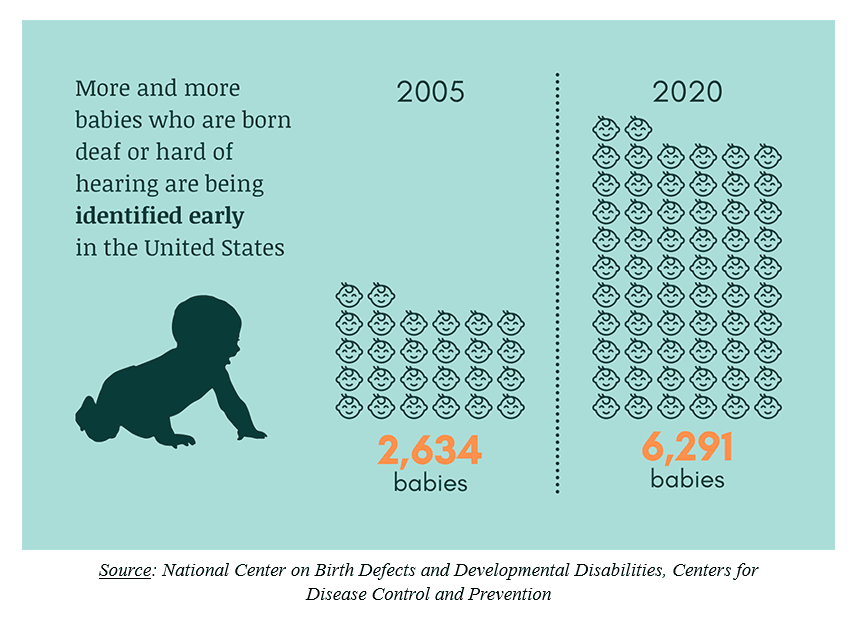Our Position
The Academy supports the Early Hearing Detection and Intervention Act (EHDI) Program, which aims to ensure that newborns, infants and young children who are deaf or hard of hearing are identified and get the care they need when they need it.
Update: On December 20, 2022, President Biden signed the Early Hearing Detection and Intervention Act (S. 4052) into law. This bipartisan legislation reauthorizes the EHDI program, which funds state-based programs that provide screening and early intervention services for children who are deaf or hard of hearing, through fiscal year 2027. The AAO-HNS applauds Congress for advancing this critical legislation, which had been a key legislative priority for the Academy during the 117th Congress.
Background
Hearing loss continues to be one of the most common birth defects in the United States. Since the EHDI program was created in 2000, approximately 98% of newborns now receive screenings for hearing loss within just days of their birth. Prior to that, fewer than 1 in 10 newborns born in the U.S. received prompt screening for hearing loss.

The EHDI program has demonstrated the value of early detection and intervention programs for children and infants facing the possibility of experiencing hearing deficiencies. For example, those with hearing loss who are able to access early detection and intervention services have a better chance of developing adequate language, communication, cognitive, and social development skills, along with their peers. Since EHDI’s inception, states and territories have had unprecedented success in identifying newborns and infants with hearing loss and delivering the necessary services and treatment to help them build healthy and successful lives.
Resources
117th Congress
